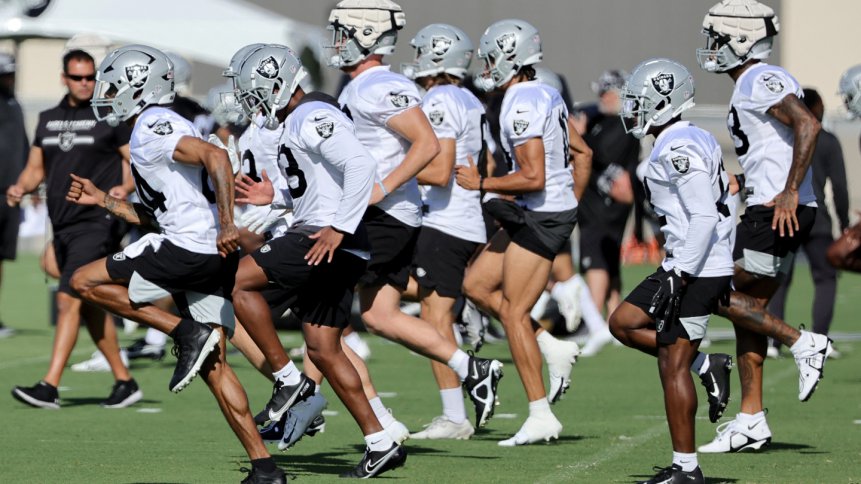Sports industry explores winning ways with tech

What does it take to come out on top on the sports field? Self-belief, a winning team mentality, and having the skills and fitness to run rings around the opposition all play a role. But technology is playing its part too, as coaches (and marketeers) make progress in ramping up their team’s successes through an array of data-driven methods.
Professional sports organizations have firmly embraced the business idiom of ‘what gets measured, gets managed,’ with notable wins. Wearable GPS trackers that measure acceleration and direction, as well as player position, have been shown to reduce injury rates as coaches can better monitor training sessions and rest players before they overdo things.
Tablets on the touchline
With key data at their fingertips, teams can track performance so that squads peak at the right time, putting them in a stronger position to win matches. Laptops and tablets have joined notepads on the sidelines, giving coaching staff a real-time view and helping them to better time player substitutions in soccer, rugby, football and other sporting competitions.
Having firmly hit the mainstream, sports technology is appearing on the shopping list of amateur teams too. Device makers have taken notice and providers, such as the UK’s Pitchero, offer bundles that target this growing user group. Stats gathered by units (often vest-mounted) include total distance traveled, playing time, top speed, and number of impacts, as well as aggregated data such as heat maps showing where athletes spent most of their time on the field.
Long-time player in the sports technology market, Catapult – which was founded in Australia (growing out of research timed around the Sydney Olympics) and has expanded across America – also recognizes that the market has broadened and has a range of devices at different price points.
Future growth
To stay ahead, sports technology providers need to appeal not just to elite professionals, but also to the stars of tomorrow. Titan Sports, which develops and builds its sensors in the US, has grown a large user base across college football teams – which feed the NFL with the majority of its talent. The company’s products help not just with gathering on-field data, but also in coordinating strength and conditioning programs – for example, by reporting on training schedules and performance in the weights room and monitoring muscle soreness and fatigue.
Naturally, collecting data is only one side of the coin. Minting success means knowing what to do with the information once it’s been gathered. And this is where the big leaps in team performance are now being made.
Data platform provider Splunk – headquartered in San Francisco, California – has been working closely with the sports world for some time, recognizing the abundance of data that’s now being generated and helping cycling teams, Formula 1 partners, and many other clients to build dashboards that make searching for insights easier. The opportunities for users are huge – for example, to build predictive models that crunch weather conditions, team line-ups, field positions, and more to forecast what key players such as NFL quarterbacks are likely to do next.
Marketing magic
And it’s not just the players and coaches that are benefiting from the boom in sports technology; fans are getting in on the action too – in some interesting ways. Digital collectibles, powered by non-fungible tokens (or NFTs), could help club supporters to feel closer to their teams, particularly those that are unable to get to the stadium or home ground. Or at least, that’s the plan. Steve Madincea – a sports marketing veteran and co-founder of Fantastec – explained the concept in Episode 19 of TechHQ’s popular Tech Meets Business podcast. Trading of digital assets could turn out to be an astute play if it can capture the imagination of fans in a similar way to the physical baseball card scene. In recent times, sports card collecting has been booming, dazzling the alternative investment world.
Data Sports Group, a provider of customizable sports data widgets, noted earlier this year that clubs are extending their use of data to win customers, not just matches. Underpinning this initiative is ‘know your customer’ (KYC) – a strategy commonly used to protect business transactions, but with benefits to product developers too. Tools such as eye-tracking can determine (and help quantify) the emotional state of the audience and assist team owners in appealing to the needs of all fan types, from casual to die-hard.
The delivery of sports data is big business with firms such as SportsDataIO, Stats Perform, and Sportrader – to just scratch the (playing) surface – competing to offer API solutions. The customer base is wider than you may think, too, including fantasy league operators, brand owners, and governing bodies (which also benefit from a raft of referee-assisting hardware such as ball and goal line tracking technology), as well as expected clients such as broadcasters and teams.
Big rewards are up for grabs in the sporting world, both on the field and commercially, which makes it an exciting space for tech providers and their data partners to explore.









